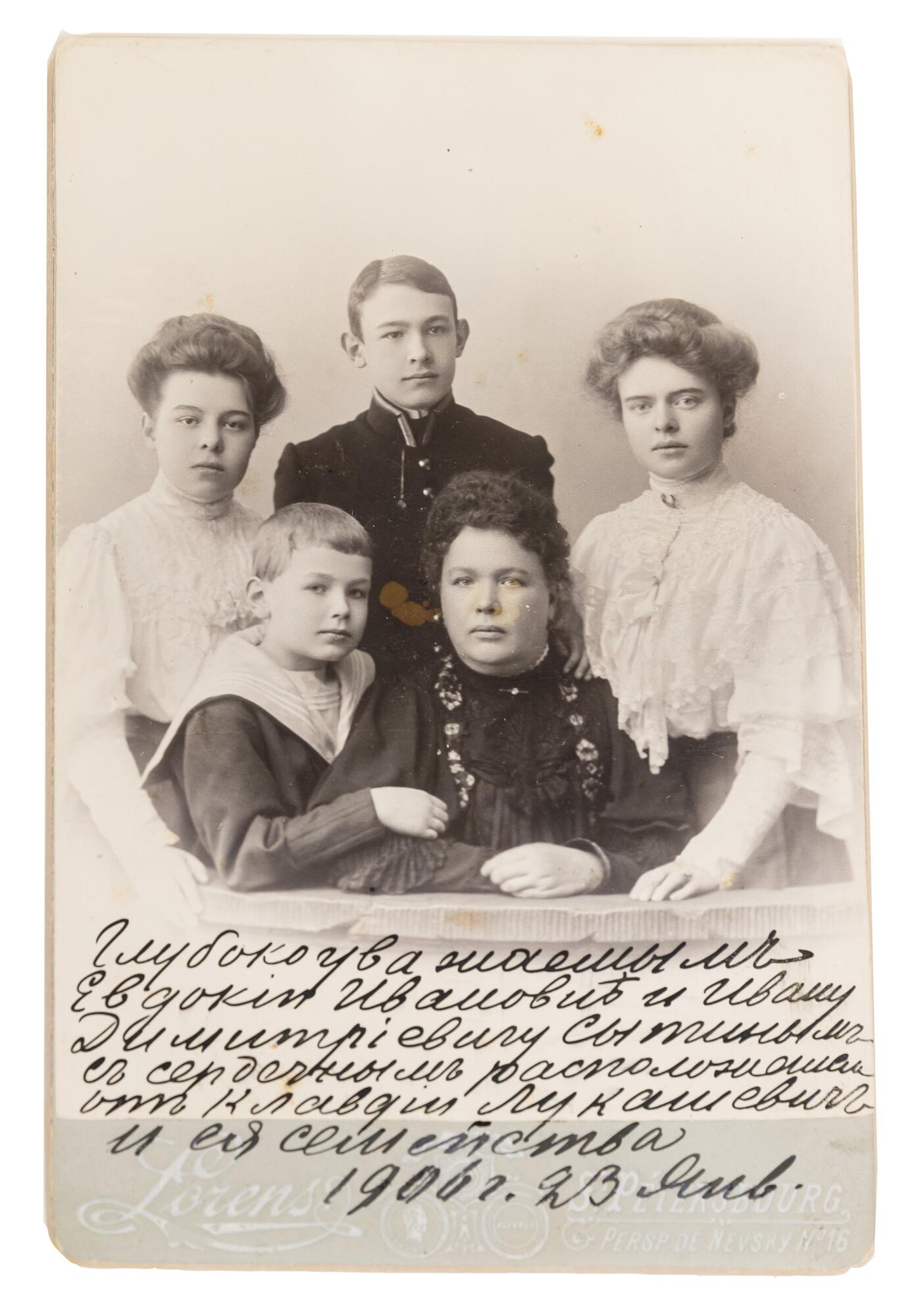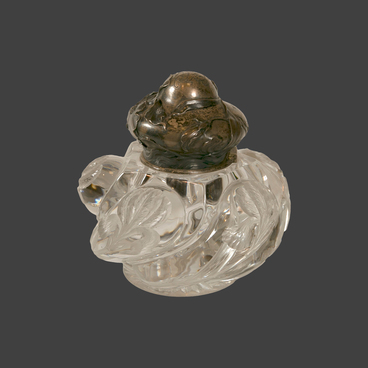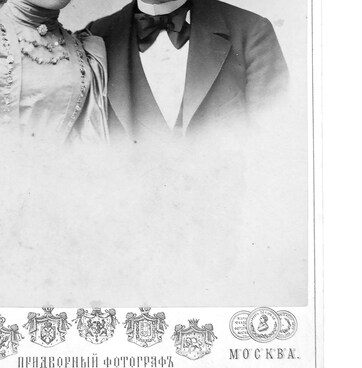Almost all works of the children’s writer Claudia Vladimirovna Lukashevich were published by Ivan Sytin’s company. At a young age, she lived through a lot: the loss of her nanny, the divorce of her parents and the complete collapse of her family. The girl was able to keep her heart and soul open for kindness and mercy. At an early age, she chose her path in life — to be a writer.
Claudia Lukashevich’s collaboration with Sytin was long-lasting and fruitful. The large and cheap print runs of Sytin & Co made her works accessible to children all over the country. In addition, the writer and the publisher developed a friendship. The museum houses a photograph of Claudia Lukashevich with her children, which she presented to Ivan Sytin and his wife with a warm inscription. In the group picture, Claudia is in the center, to her right is her son Pavel, dressed in a sailor suit. Her son Vyacheslav stands behind her.
Lukashevich was a teacher and wrote many collections for “parents, educators, older brothers and sisters” on organizing children’s holidays. For example, for girls, she created the following scenarios — “Holiday of Dolls”, “Holiday of Flowers”, and for boys — “Military Holiday”. She compiled special collections for children with stories, poems, riddles, games, and tips, “A Little Bit about Everything” and “Read It and Tell Others.” In 1903–1908, her table calendar for children “My Friend” was published.
Lukashevich also wrote for school-age children, her most popular stories were “Clear Sun”, “Workers”, as well as the novellas “Spark of God”, “Poor Relative”, “New Tenant”, “Uncle-Flutist”, “Orphan’s Lot” and others. In 1917, the writer went to Gelendzhik for treatment. In 1921, she was summoned to St. Petersburg by Lunacharsky who offered her to rewrite her works “in the spirit of the times.” Claudia Lukashevich refused, and in 1923 her books were banned and removed from libraries. Moreover, one could go to prison for keeping her books at home. However, somehow miraculously, her work “Mitrofanushka. From New Tales for Young Children” was published in 1924 in Petrograd, and in 1927 in Moscow — the story “The Son of a Switchman”.
Interestingly, Claudia
Lukashevich was the godmother of Dmitri Shostakovich and played an important
role in his life. During the First World War, she maintained a ward for the
wounded at her own expense, as well as a shelter for children of soldiers who
went to the front. In 1927, Claudia Lukashevich left Leningrad forever and
settled in Rostov-on-Don. She lived there for about five years and died in
February 1931. Unfortunately, her grave has not been preserved.


